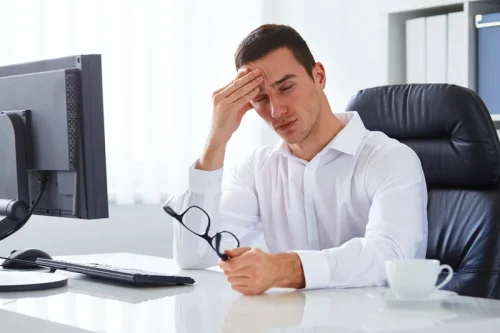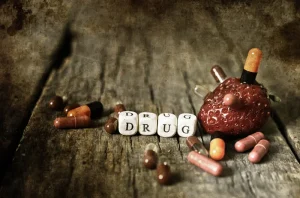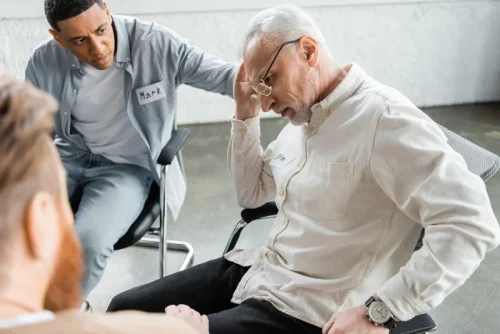
If you are pregnant, talk to your psychiatrist or obstetrician about both the risks of continuing the drug and the risks of quitting while pregnant. If you do want to quit while pregnant, a medically supervised taper is the safest way to do so. While it may not feel like a serious drug, especially if you only take it as directed, it has powerful effects https://ecosoberhouse.com/ on your brain. Some people may be better suited for a harm reduction approach, in which the taper leads to a maintenance dose rather than abstinence. For up to a month after ceasing inhalant use, the patient may experience confusion and have difficulty concentrating. This should be taken into consideration in planning treatment involvement.

Patient Accounts

For example, symptoms of anxiety or insomnia may come back or get worse without the drugs. A variety of withdrawal schedules from several benzodiazepines are illustrated on the following pages. Schedules such as these have worked on real people, but you may need to adapt them for your own needs. The advantages of discontinuing benzodiazepines do not necessarily mean that every long-term user should withdraw. Nobody should be forced or persuaded to withdraw against his or her will.
What happens when you stop taking benzodiazepines?
As of 2018, an estimated 5.4 million people over the age of 12 misused prescription benzodiazepines like Ativan. Ativan can lead to dependence even if you take it exactly as prescribed. A common question benzodiazepine withdrawal that people have is “Can you quit benzos cold turkey? ” Though it may initially seem like a tempting option to try to detox from benzodiazepines at home, it is not a good idea for several reasons.
What is the timeline for benzo withdrawal symptoms?

Patients with cognitive impairments as a result of alcohol dependence should be provided with ongoing vitamin B1 (thiamine) supplements. Provide symptomatic treatment (see Table 3) and supportive care as required. Procedure for administering clonidine for moderate/severe opioid withdrawal. Patients who are opioid dependent and consent to commence methadone maintenance treatment do not require WM; they can be commenced on methadone immediately (see opioid withdrawal protocol for more information). However, contact your doctor for advice before taking any vitamins or supplements. Your doctor will consider your personal health and circumstances before recommending vitamins or supplements.
8. WITHDRAWAL MANAGEMENT FOR CANNABIS DEPENDENCE
Of those surveyed, 43.7 percent said “situational anxiety” was the leading reason for their prescription, with insomnia or sleep disturbances second at 40.3 percent, and panic attacks third at 39.3 percent. The cannabis withdrawal syndrome is typically mild, but can be difficult for the patient to cope with. Patients should drink 2-3 litres of water per day while in withdrawal. Offer symptomatic medication as required for symptoms such as headaches, nausea and anxiety (Table 3). Patients should drink at least 2-3 litres of water per day during stimulant withdrawal. Multivitamin supplements containing B group vitamins and vitamin C are recommended.
- These symptoms may be troubling or affect a person’s quality of life.
- While a few respondents were able to discontinue benzodiazepines with few or nosymptoms, whether abruptly or over time, many wrote in about persistent anddisturbing symptoms.
- Withdrawal symptoms can occur after as little as one month of use, even on small, therapeutic doses.
- It has been estimated that anywhere from 10 to 25% of people who take benzodiazepines for long periods experience what’s known as protracted withdrawal.
- Anecdotally, a slow rate of reduction may reduce the risk of developing a severe protracted syndrome.
Because of its pharmacological action (partial opiate agonist), buprenorphine should only be given after the patient begins to experience withdrawal symptoms (i.e. at least eight hours after last taking heroin). Symptomatic treatment (see Table 3) and supportive care are usually sufficient for management of mild opioid withdrawal. Offer accurate, realistic information about drugs and withdrawal symptoms to help alleviate anxiety and fears. It is very common for people who complete withdrawal management to relapse to drug use.
- All condition, treatment and wellness content is medically reviewed by at least one medical professional ensuring the most accurate information possible.
- Patients who repeatedly relapse following withdrawal management are likely to benefit from methadone maintenance treatment or other opioid substitution treatment.
- According to the British National Formulary, it is better to withdraw too slowly rather than too quickly from benzodiazepines.[67] The rate of dosage reduction is best carried out so as to minimize the symptoms’ intensity and severity.
- Outpatient programs can include partial hospitalization programs, intensive outpatient programs, and standard outpatient treatment options.
If you stop or reduce your dose suddenly, you will experience withdrawal symptoms. Benzodiazepines are a group of central nervous system depressants used to treat anxiety, insomnia, and seizures. Benzodiazepines are among the most commonly prescribed medications in the United States. Several types of benzodiazepines are sold under popular brand names like Valium (diazepam), Xanax (alprazolam), and Klonopin (clonazepam).
What Are Benzo Withdrawal Symptoms? Everything to Know
- Dependence and withdrawal can happen to anyone, even if you take your medication exactly as instructed.
- Some people who use inhalants regularly develop dependence, while others do not.
- The social and economic consequences of chronic benzodiazepine use are summarised in Table 3 (Chapter 1).
- Symptomatic medications should be offered as required for aches, anxiety and other symptoms.
- If you experience mild side effects, talk to your healthcare provider about your options.
- Opioids are drugs such as heroin, opium, morphine, codeine and methadone.